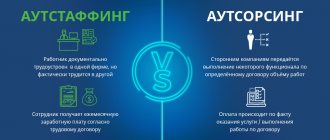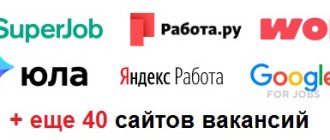general information
A competency-based interview allows you to identify significant behavioral reactions of a candidate .
A competency-based interview, also called a criterion interview, involves asking the candidate how he would behave in a particular situation that is significant for his professional activity.
His answers are assessed in terms of pre-developed criteria . Such an interview shows the degree of development of certain qualities of the candidate. He may be given challenging or multiple choice questions to choose from.
In some circumstances, a criterion interview may be mixed with a biographical and professional interview.
Who do they usually hang out with?
A competency-based interview allows you to identify the personal and business qualities of the subject.
It allows you to predict the applicant's behavior in a given situation .
Typically, competency interviews are conducted with applicants whose professional activities will be related to management and decision making .
An excellent example of a competency interview is an interview with managers, administrators, and executives.
How is the interview conducted?
Before introducing this form of interview into an enterprise or company, managers conduct certain preparations. A model of competencies is formed, on the basis of which it will be decided whether a person is competent enough to perform potential responsibilities.
A competency model is a set of certain qualities and personal characteristics adopted by the manager as a standard in the process of assessing the applicant. Each individual position has its own set of qualities.
To create a standard interview model, about 6-10 characteristics that are inherent in one specific position are sufficient. Basically, managers take as a basis such qualities as:
- Responsibility.
- Effective communication.
- Teamwork.
- Learning speed.
- Readiness for change.
- Leadership.
- Stress resistance.
Each of the qualities must have individual manifestations and characteristics. For example, teamwork should be manifested in the fact that an employee, while working, tries to complete a task together with his colleagues or with their help. The employee must constantly share his accumulated experience. Must be fully immersed in the work activities of the team. Must put the interests of employees and the entire enterprise above his own.
Effective interaction with colleagues and superiors implies that a potential employee expresses his point of view as rationally as possible and at the same time listens to colleagues, asks questions, monitors reactions, and skillfully changes his original point of view.
The set of required characteristics and qualities of a potential employee is determined based on the cultural and organizational characteristics of the enterprise. The employer's management style matters. Position also matters. For a professional company call center operator and an experienced accountant, the requirements will naturally be different.
The manager then makes a list of questions to ask to determine each of the potential employee's job-relevant qualities.
The interview conducted has certain time limits. On average, an average of 1 to 3 minutes is allocated for each question or consideration of a situation.
What questions are asked
The number of questions will depend on the timing of the interview and its objectives. Sometimes a competency-based interview can take up to 3 hours . On average, 10 questions are designed to identify each competency.
Here are sample interview questions based on competencies and (expected answers):
1.How does your working day usually go?
In the answer, it is important to record how many times the applicant uttered verbs , for example, I’m going, I’m doing, I’m calling, I’m deciding, I’m analyzing, I’m planning, I’m meeting. The more verbs there are, the more a person is inclined to take specific actions.
2. Give an example of a situation when you intuitively felt that you needed to take matters into your own hands.
It is important here that the candidate more often begins a sentence with “I”, and does not speak with passive constructions, such as “it was necessary”, “should have been done”.
In addition, the speech must maintain a balance of positive and negative , for example, “I was criticized,” “I was helped.”
3.You think that your department needs team building training, and it will be quite expensive. How do you convince your bosses that they should fund the event?
here is the depth and persuasiveness of the arguments , innovative thinking, and self-confidence.
4.If you can perform the duties of a lower-ranking employee better, what will you do?
Here it is important to track whether the applicant will grab onto everything at once to the detriment of his main responsibilities, or whether he will find a way to flexibly and quickly train lower-level personnel and give substantive and practical advice to employees.
5.How will you convince the team to work according to your scheme?
In this situation, the power of persuasion, the depth of arguments , and the ability to build good relationships with the team and take on the role of leader are important.
6.What will you do if you are suspended from work?
here is how much a person does not succumb to stressful situations , how quickly he can react, resume work, restore his professional reputation and relationships with his superiors.
7.What will you do if you chose the worst one out of three job offers, and rejected the other two, more promising ones?
What is important here is how well the candidate can resist stress and whether he will try to regain the lost vacancy.
8.What will you do if you hire an unsuccessful candidate?
In answering this question, it is important whether the candidate will try to hide or mitigate the missteps of the incorrectly selected employee or fire him.
Competency Interview: Questions and Answers
To collect PPP for each competency, 3-10 questions are required.
The candidate is asked to answer a variety of competency-based interview questions:
competency "Responsibility".
In a situation where you overestimated your capabilities and realized that you were unable to cope with the task, what actions did you take?What did you do when you were unable to submit your results on time?
- "Ability to work with subordinates." How did you resolve a personal conflict that broke out between employees? How did you convince your subordinates to work according to a plan that not all of them agreed with?
- "Teamwork abilities." How did you help a colleague who made a mistake in calculations? What did you do in a situation where a conflict of interest arose between your structural unit and other project participants?
- "Striving for self-development." When was the last time you completed training? What do you do in your free time? Which colleagues do you consult with?
- "Efficiency oriented." For some time your work did not bring the expected results, what did you do and feel? Tell us about a situation in which you showed persistence and proposed non-standard solutions?
- "Readiness for change." What changes have you made to improve the performance of your co-workers? Tell us about how you performed duties that were not your job? Were you forced to replace your manager? While on vacation, did you resolve an unpleasant situation involving a stranger?
The answers to the questions should be:
- with specific examples from the candidate’s professional activities or personal life;
- about situations in which the candidate was directly involved;
- relevant at the moment, it is advisable to obtain a PPP about actions that have occurred over the past six months or a year;
- contain a story about the result obtained.
Important! It often takes more than three hours of working time to interview one candidate.
Characteristics
Focus on quality
To identify competence, it makes sense to ask what the subject means by the concept of “quality product” , “quality work with the client”
Ideology
To identify competence, it is worth asking what actions can be taken to develop corporate spirit among employees.
Flexibility
Here you can ask how the applicant feels about changes in the company’s work , new creative tasks, and a change in work schedule.
Planning and organization.
In connection with this competence, you can ask how the subject plans his activities , how often he changes his plans and what is the reason for this.
Passion
When assessing this characteristic, it is very important to know the following:
Does the candidate keep up with the latest news in their field of work??
Does he read literature in his specialty, does he improve his qualifications through trainings and seminars?
How does he assess his possible contribution to the future of the company and its development prospects?
Leadership and decision making ability
Here it is important to find out how the candidate will behave in a difficult non-standard situation in the absence of guidance and time to wait.
Stress resistance
A conflict with a difficult client or boss can reflect the degree of development of this competence.
Communication skills
You can ask the candidate how to quickly join a new team and become part of it .
Analytic skills
Let's say a candidate has a whole pile of information on his desk to write a report, and only 3-4 hours of time. What will he do?
Multitasking
The candidate needs to implement several diverse projects at once. In this case, a minimum of time is given. What will he do, how will he plan, how will he work in a team ?
Ability to work in a team and delegate authority
If the applicant can cope with each of the assigned tasks, but there is a time limit, how will he distribute responsibilities ?
Examples of competency assessment questions
Responsibility
Questions assess whether the candidate is able to see guilt in his actions and whether he strives to fulfill his obligations.
- Tell us, what important task did your manager entrust to you?
- Demonstrate a situation where you took responsibility, but soon realized that you overestimated your capabilities.
- Think back to a time when you failed to achieve a goal.
Employee motivation
To assess whether the candidate is able to help the employee cope with the situation and give him motivation for fruitful work, the applicant needs to answer the proposed questions.
- Tell me about a time when you needed to get more performance out of an employee.
- Tell us how your subordinate lost interest in work.
Teamwork
The questions presented will help identify the candidate’s ability to provide assistance in a team to achieve a common task, and the desire to put forward his own ideas for solving the issues raised.
- Remember how you had to team up with employees to solve a common problem.
- Tell us a situation when it was most difficult for you to work in a team?
Teamwork
Result oriented
The following questions will help to assess a person’s ability to set goals and achieve them, despite any obstacles.
- Think back to a time when work on a project was not productive.
- Tell us about a time when you set a big goal for yourself and achieved it despite obstacles.
- Do you consider yourself persistent? How much?
- Tell us when your persistence came in handy.
Planning and organization
The questions presented will help to identify how the candidate is able to plan things and make decisions on organizing activities aimed at implementing the project.
- Tell us about your experience in planning and implementing tasks and projects.
- Tell us how you calculated the budget for this project.
- How did you organize the work to implement the project?
- Did you encounter any difficulties associated with the implementation of this project?
A competent interviewer, after analyzing the answers, determines how suitable the candidate is for a specific position.
A competency-based interview is an effective method of personnel selection that can assess the main qualities of an applicant on which the successful functioning of an organization depends: leadership, initiative, responsibility, ability to work in a team, ability to set goals and achieve them, etc.
Grade
Assessment of competency-based interviews should be multifaceted.
It is also important how much a candidate thinks about questions for an interview on competencies , and what he avoids talking about, and what words he most often chooses, how confidently he answers, clearly, accurately and clearly expresses his thoughts.
Before the event, selection criteria, the level of education and work experience of the employee are determined, and a forecast of the desired behavior in different situations is made.
Taking into account the pre-created psychological portrait of the ideal candidate, blocks of questions are also formed.
After the interview, the applicant’s qualities are compared with this psychological portrait.
At the end of the interview, the interviewer writes a detailed report indicating the test taker's strengths and weaknesses for each competency.
Advantages
When preparing for a competency-based interview, questions are prepared in advance and contain a large number of competencies. Questions allow you to deeply identify the degree of development of each of them. They are formulated in such a way that the likelihood of socially expected answers is minimized .
What it is?
Competency identification interviews are one of the most commonly used types. In various sources you can also find the name “behavioral interview” or “behavioral interview.” Whatever the name may sound, the purpose of this method is to identify the real skills and competencies of the applicant , since the work experience indicated in the resume does not always correspond to reality.
Competence is a skill, characteristic, or ability of a person to effectively perform his or her job.
This type of interview allows you to create a scale for assessing the manifestation of indicators of the candidate’s competencies based on an analysis of the situation in the past, that is, questions are asked not about hypothetical and possible problems, but about real situations that took place in the specialist’s past activities.
The sequence of questions provides an opportunity to discuss with the applicant all the important aspects of the situation as they relate to it in itself, the problems he tried to solve, the actions he took and their results, as well as the conclusions that were drawn from the experience.
As a rule, this method is not the only one when conducting an interview, especially if a person is applying for a responsible or top position. The following types of interviews are conducted together with behavioral interviews:
- biographical;
- motivational;
- case interview;
- assessment of the candidate's motivational factors.
You can learn how to prepare a plan for this interview and methods for conducting it from the following video:
https://youtu.be/70ZWvqAirGQ
Structured interview
A structured competency interview includes several blocks of questions for each criterion . As a rule, in a structured version there are many such blocks. The criterion interview, as we know, can be cut down depending on the specific position.
The structured form is good precisely because, depending on the profile of the position, it allows you to formalize and simplify the process as much as possible , create specific blocks of questions and analysis methods and use them constantly.
The structured nature of the process allows us to work quickly and efficiently and select the most suitable candidate for each vacancy.
We recommend that you familiarize yourself with other interview methods: “Polygraph testing”, “Via Skype”, “Group interview”, “By telephone”, “Stress interview”.











